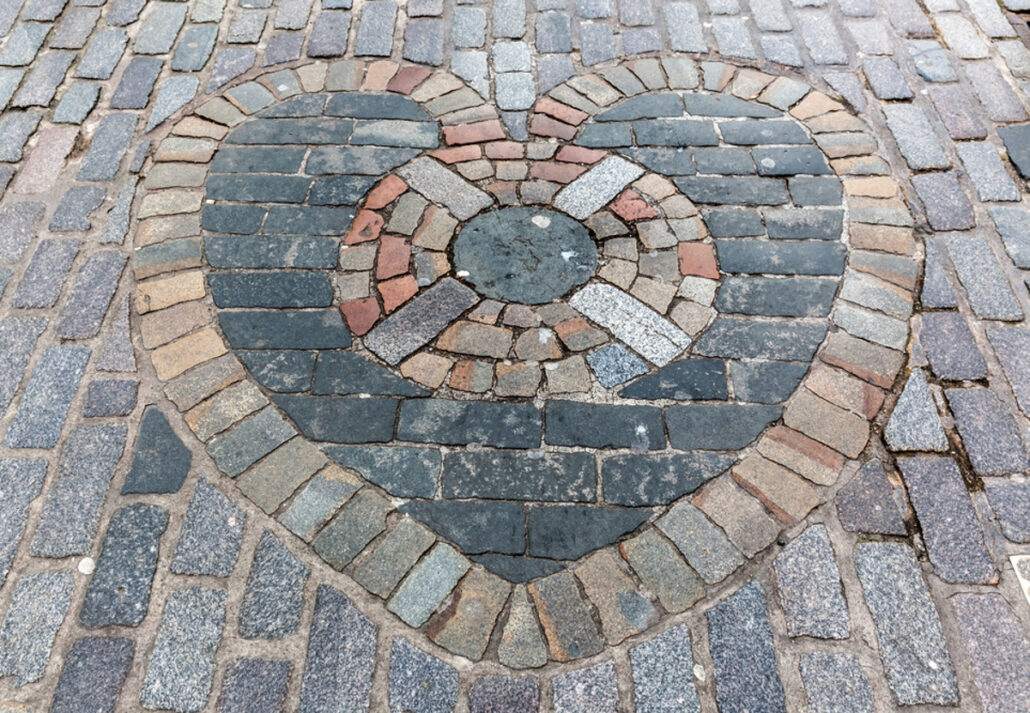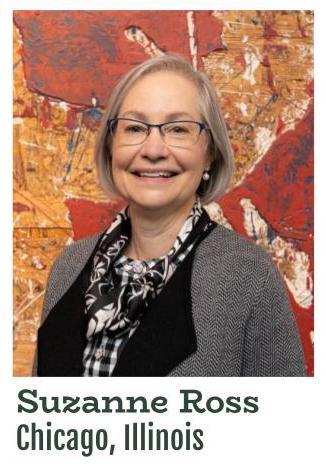See. Do. Be. Free.

Issue 018
An Open Letter to the Community around this year's theme.
Issue 018: Wholeheartedness – “Faith and Love Freely Given” by Suzanne Ross
As Street Psalms enters its 25th year of forming grassroots leaders in vulnerable communities, we are inviting friends of our work to reflect with us on their own sense of vocation and call. This month Suzanne Ross reflects on our guiding question:
When did your sense of vocation become real to you and what does it mean for you to show up wholeheartedly in your call when confronted with disappointment, failure, despair, and your own half-heartedness?
When I was a young girl growing up Catholic, I was devoted to Mary. We had a lovely tabletop statue of her with hands open wide to either side as if reaching out to hug me. All during May, I would gather wildflowers and weave them into a tiny crown for her head, for May was Mary’s month. I would sing, “Oh Mary, we crown thee with blossoms today/ Queen of the Angels/ Queen of the May.”
When I was about 8 or 9, I had a vision during mass. I was kneeling in a pew in front of a much larger version of my home statue. This larger-than-life Mary looked down on me with open arms and that expression of hers that mingles love and sorrow into tenderness.
Suddenly, I saw her lips move! Mary was talking to me! Blood rushed in my head clogging my ears and I could not hear what she was saying. But I was overwhelmed with a feeling of being loved as I had never felt before. Her lips kept moving and I longed to hear what she was saying. But the message of love had come through loud and clear. At least at that moment, overwhelmed by that vision, I could believe with all my heart that I was loved without reservation.
I’m not exactly sure why, but when Kris invited me to contribute to this series on vocation, my thoughts turned to that vision. I had other thoughts, too. Mostly doubts about whether the Street Psalms community would find anything of value in my vocational journey. I have been sorely tempted by false humility all my life, so accepting an invitation to talk about my vocation as if it was a valuable story to share with others triggered my internal hypocrisy alarm.
But I couldn’t help but consider why that vision came to mind. There is not a straight line from my nine-year-old self to today, so maybe there was something about the context in which that vision came to me that allowed me to consider my vocation in a way I haven’t thought of before. Or maybe it was the Spirit moving through Kris’ invitation that stirred something in me and called my story forth.
When I felt Mary reaching out to me it was in the 1960s in a church in a quiet suburb in northern New Jersey, but the world around me was anything but quiet. It was filled with the haunting shadows of the Vietnam war, anti-war protests, race riots, political assassinations, the nuclear arms race, bomb drills, and fallout shelters. It was the Cold War era, and the possibility of nuclear winter and mutual annihilation was real. There was no shelter from violence as an ever-present threat no matter how peaceful my backyard felt.
Even in all that, the biggest shadow that hung over me then was one particular to my family. My dad’s older brother was declared missing in action in World War II more than 10 years before I was born. I never met my Uncle John, but he was a presence in my life nonetheless. I felt more than heard the story that my grandmother had been a fun-loving woman, gay and quick to smile before her son was lost. Afterward, she became withdrawn and quiet, always searching the faces of strangers hoping that her son would somehow be found nearby, close to home but lost and searching for his family as they were searching for him.
All this planted in me an aversion to violence and war. Nonviolence was a moral choice and I felt quite noble about it. Taking nonviolence as part of my identity allowed me to take pride in my goodness! Though I never left the safety and security afforded by the accident of my birth to test my commitment, I clung pridefully to my nobility.
It was not until five years ago when I attended a conference in Nairobi about unarmed civilian protection that I could no longer ignore my hypocrisy. At the conference, I met active peacebuilders from across sub-Saharan Africa who regularly put themselves to the test. They risked their safety by entering conflict zones or internally displaced persons camps without weapons to protect civilians. Or they protected candidates and polling places from election violence while being unarmed and vulnerable. I thought they were the bravest and noblest of all people, angels and saints who walked among us.
But they did not see themselves that way. They recoiled from my moralizing about their saintliness. They gently drew me to question the consequences of my thinking: If they were saints in my eyes, who did I think were the sinners? If they were the angels, who was I willing to label a devil? If they were noble – if I was noble – who were the commoners? As they rejected my romanticizing of their vocation, I came face to face with my ignobility. I was suddenly aware that I had unconsciously been creating a whole group of people against whom violence was noble, justifiable, and good. What was noble about that?
Through their gentle leading, those African peacebuilders planted something in me that I was not yet fully aware of, but its fruition is what has shaped the vocational path I now find myself on. And as that seed started to sprout, I began to explore the possibilities for unRival.
A few years later I was led in a process of listening attentively to over fifty more activists, academics, and artists seeking peace for their communities. What emerged was an “ask” as they say in fundraising. But it wasn’t an “ask” for money. They asked for two things that they desperately needed but didn’t know where to find. First, they asked if we could help them find community. They opened up to us about the difficulty of living nonviolently in a violent world, of the isolation and loneliness, of finding themselves accused by all sides and belonging nowhere. Could we gather other local leaders like themselves into a community of support and learning, an honest safe space where they could be themselves without pretending they had all the answers or the perfect fundable program? If we could, they would be most grateful.
And they asked for something else. They had no time or resources to spend explaining why they pursue a nonviolent path to peace and justice. Safety and security are so entangled with strong defenses and the threat of lethal offensive weapons that they were overwhelmed by the enormity of the task. Could we help them tell the story of nonviolence in the pursuit of peace and shift public perception away from belief in violence?
I threw my whole heart into unRival because I was asked to do it by people who shun praise and the spotlight – the truly humble. I don’t know why they believed I could do what they asked, just as I don’t know why Mary showered me with love nearly sixty years ago. In fact, friends and family have asked me why I would take on the work of starting a new organization now when I should be retiring and spending more time with our grandchildren. And in truth, when we started two years ago I really had no idea how difficult and time-consuming it would be. But, it’s probably the vast disconnect between my skills and the task the peacebuilders set before me that has tempered my pride. Believe me when I say, failure is an option. But I feel called to try my best to live up to their faith in me.
Which I think is what reminded me of my vision of Mary’s love. Because I can do nothing to earn their faith just as I had done nothing to earn that vision. Faith and love were both freely given to me. All I can do is respond with all my heart. Because no matter how unRival turns out, and especially no matter if I can take pride in what we do, I will have spent a few good years walking with people whose arms are flung wide open to create a future where everyone in their communities can flourish. Dare we hope that Mary would be proud?
Suzanne Ross serves as Co-Founder and Executive Director and guides the vision of unRival, an organization that seeks to transform violent conflict into new forms of living. Learn more at unrival.network.

